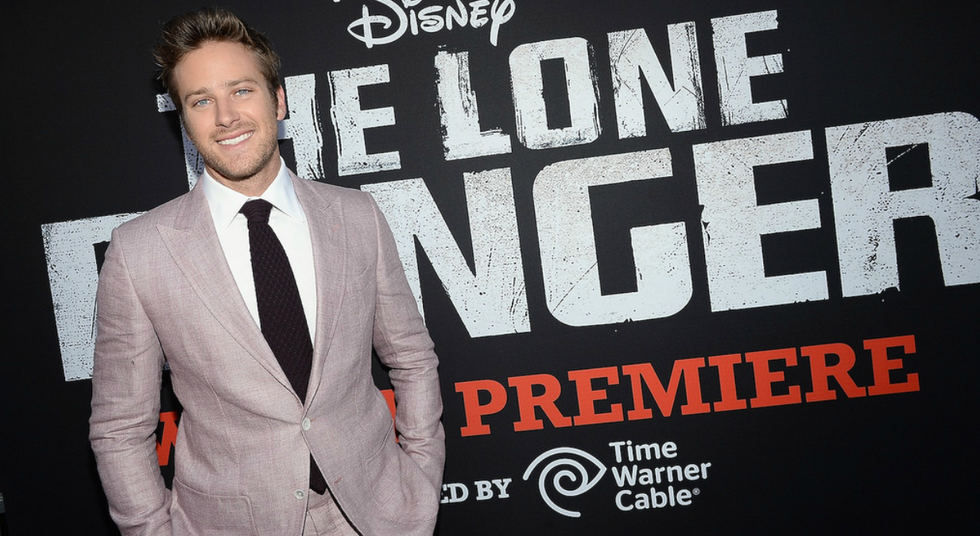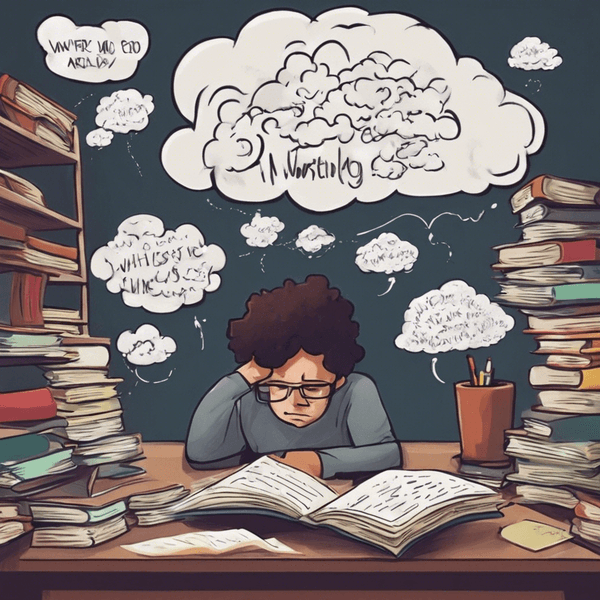Dear Armie Hammer, Your Straight White Maleness Isn't Threatening To Me
Armie Hammer made some comments about privilege in a recent interview and it doesn't sound as unifying as he might intend it to.
Armie Hammer recently sat down for an interview with "The Independent." He was promoting his new film, "On the Basis of Sex," a film about sexism within the United States legal system. Hammer also appeared in the Broadway play, "Straight White Men." So naturally, the conversation revolved around a subject that many of us hear discussed a lot these days: straight white male privilege.
For those unfamiliar with the concept, let me just say that it's very tempting to live in your world right now. As for the definition, it doesn't follow the concept of privilege the way you would expect. It disregards things like class and focuses more on the social status of different races, genders, and sexual orientations. It claims that if you're straight, white, or male you don't have to deal with certain hardships people of minority groups face.
In the interview, Hammer is quoted as saying, "at the end of the day, what is straight white maleness if not threatening to everyone else who is not a straight white man?" Well Armie, as someone who is only two of those things, I can honestly say you're not threatening to me in the slightest. The only straight white men minority groups should be threatened by are those trying to harm them or strip them of their rights.
Now let me make this very clear, I am in no way negating the fact that minority groups experience certain disadvantages based on their race, gender, or sexuality. This sort of privilege does exist for people in America who are white, cisgender, heterosexual, or male. However, I have an issue when people feel they know every individual's lived experiences.
The idea of straight white male privilege should be discussed in a case-by-case basis. White people should be encouraged to think about ways in which they benefited from white privilege in their own lives. They should ponder their own experiences where they were clearly treated better than a black person in the same situation.
Unfortunately, a lot of people don't broach this subject in this way. They will speak to white people as a whole and assume they've never been mistreated due to their race, gender, or sexuality. I have a couple different problems with this narrative. For one thing, it's encouraging people to make generalizations about groups of people. It also doesn't give any examples one can say happens or doesn't happen to every member of said group.
For example, Dr. Phil recently did an episode on this very concept. One of the examples used was black people getting pulled over by police wondering how they afford the car they're driving. How do you know that every black person in America has been pulled over in this way? Maybe there are black people who have lived in Manhattan their whole life and only use public transportation. However, that isn't to say that they might not have other kinds of frightening encounters with police.
I am fully aware that black people experience racial profiling. It's a life or death situation for many of them. That's the unfortunate reality of the world that we live in. I'm just not convinced you can concretely say that no white person will ever experience this in their lifetime. How do you know a white person has never been pulled over by a black officer with a chip on their shoulder? Sure, it might be far less common, but the likelihood of it occurring still exists.
Another example provided in this episode was people of Hispanic or Asian origin getting asked what country they're from when they are, in fact, American citizens. Again, how do you know a white person has never experienced this? Is it not possible that a white person was born in America to European immigrant parents? Maybe they've developed an accent due to their household and are assumed to be from another country. I also fail to understand how being asked if you're from another country is an example of serious oppression.
The category it actually falls under would be called a microaggression. Merriam-Webster defines microaggressions as "a comment or action that subtly and often unconsciously or unintentionally expresses a prejudiced attitude toward a member of a marginalized group." Microaggressions make up most examples of straight white male privilege. Straight white men experience microaggressions as well. So it doesn't make sense to use them as examples of disadvantages straight white men don't experience.
One good example would've been straight privilege prior to same sex marriage being legalized. You could say that straight people had the privilege to be married and not worry about whether it would be recognized by a different state. Whereas, at that time, gay and lesbian couples either couldn't get married at all or only had their union recognized in select states. In that case, you're not making an unfair generalization about a group of people. You're focusing on an actual law that was in place, restricting a group of people of their rights.
I have to give Young Jean Lee, the playwright behind "Straight White Men," some credit. In promotional interviews for the play, she acknowledges that straight white men are being unfairly judged. I also don't think Hammer is coming from a negative place. I think he has good intentions, as do most people who discuss this sort of privilege.
One of the things straight white men hear a lot is, "talk less and listen more." I fully understand where that sentiment is coming from, especially when a minority group is the target of discrimination. However, in order to open people's minds, we also need to understand where the other side is coming from. There's a reason certain straight white men get defensive when these subjects come up.
I understand that certain people are just racist, sexist, and homophobic no matter what. Those aren't the people I'm encouraging a healthy discussion with, as it's impossible. It just seems like a lot of people don't care to think about why some straight white men would feel attacked when people are making an unfair generalization about them.
The truth is, if you're making a sweeping generalization about a group of people, don't expect good results. There's also the increasing problem with our discourse. People don't encourage healthy dialogue anymore. If a person dares question this narrative, they're branded racist, sexist, and homophobic. If an argument is presented debunking it, that argument will likely get taken out of context or ignored. It's no wonder this is such a touchy subject.
What we need to do is find a healthy way to talk and listen to one another. We can't shut down the opinions and feelings of those we disagree with. We also can't combat generalizations with more generalizations. The cycle of division will only continue that way. The place most of us are striving for is one of unification. If things change for the better, we'll be one step closer to getting there.


























